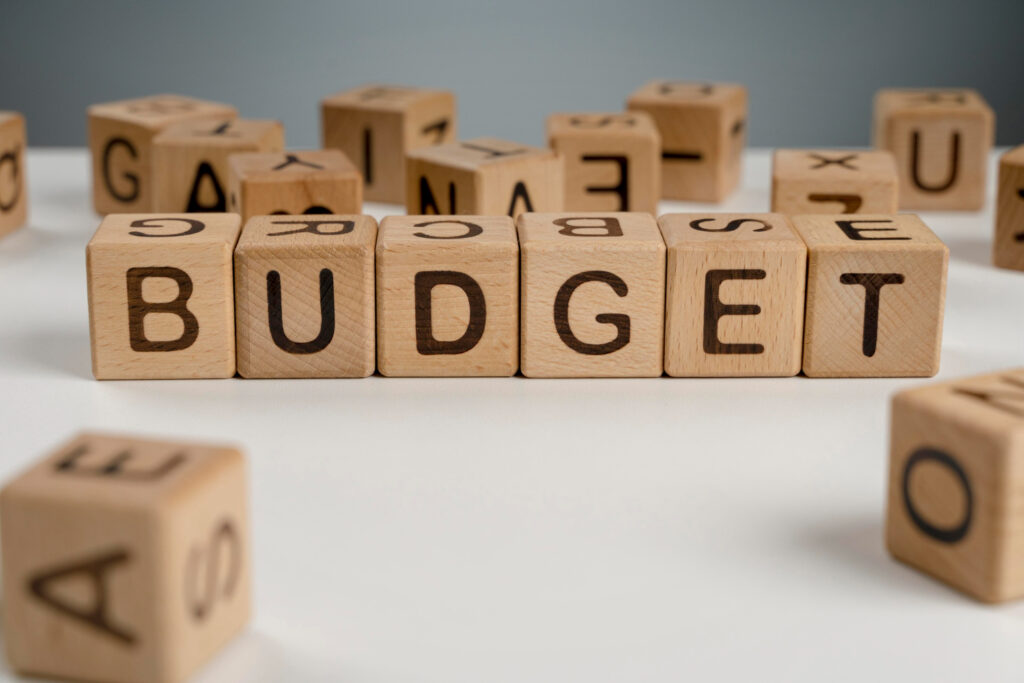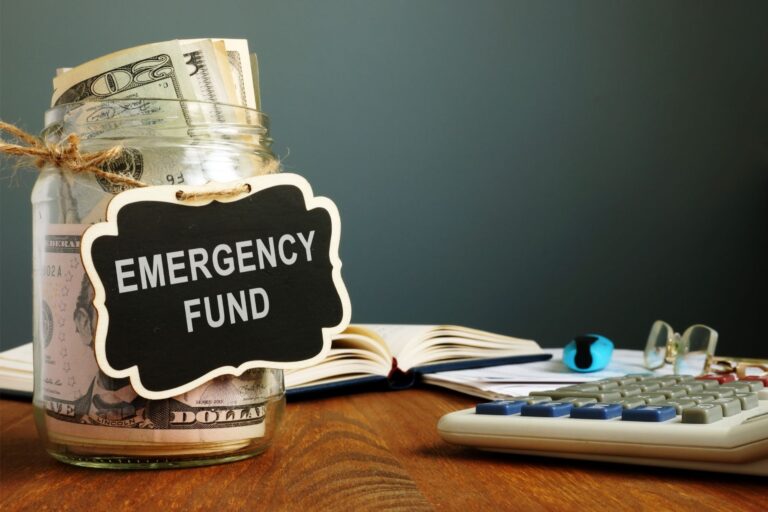10 Biggest Money Mistakes To Avoid

Let’s be honest, most of us haven’t received formal training on how to handle money. We graduate, land a job, get that first paycheck, and suddenly we’re supposed to know how to manage six figures over a lifetime. Spoiler alert: nobody does, which is why financial mistakes happen to literally everyone 🙂
Here’s the thing, though: making mistakes doesn’t disqualify you from becoming financially healthy. The real problem starts when you keep repeating the same ones. I’ve worked with hundreds of clients, analysed thousands of financial situations, and I can tell you with absolute certainty: the difference between people who build wealth and people who stay broke comes down to recognising and avoiding these predictable pitfalls.
This article isn’t about making you feel bad for past decisions. Instead, think of it as your financial GPS recalibrating so you don’t keep taking the same wrong exit. Ready? Let’s dig in.
What Are The Common Money Mistakes?
Before we jump into the big ten, let me clarify what we’re actually talking about here. Common money mistakes aren’t about being rich or poor; they’re about mismanaging whatever resources you have, regardless of income level.
I’ve seen millionaires make these mistakes. I’ve seen people making $30,000 a year execute their finances flawlessly. Income level honestly doesn’t matter. What matters is whether you understand how money flows in and out of your life.
Here’s what’s crucial to understand: most financial mistakes don’t happen because people wake up wanting to sabotage themselves. They happen because we operate on autopilot. We never learned better. We got caught up in the moment. Life got chaotic. Sound familiar? That’s normal. What separates people is whether they course-correct once they notice the pattern.
How Do You Recover From A Mistake Of Money Mistake?
This is the part that genuinely excited me when I became a financial advisor. You want to know the best news? You can’t permanently destroy your finances with a single mistake (unless we’re talking something extreme like taking out $200k in predatory loans, but even then, recovery is possible).
The recovery formula is remarkably simple, even though it requires discipline: Identify → Acknowledge → Learn → Change.
When you mess up financially,and you will,the worst move is pretending it didn’t happen or assuming it’s too late to fix. I had a client who overspent by $15,000 on his credit card. Instead of addressing it, he hid the statements for six months. When he finally opened up about it, his minimum payments alone had ballooned due to interest. If he’d tackled it immediately, he could’ve recovered in 18 months. Instead, it took four years.
The actual recovery process isn’t rocket science. You acknowledge what went wrong, understand why it happened, commit to different behaviour, and then, this is the important part, you build systems that make the mistake harder to repeat. Automated savings, spending alerts, visual progress trackers, whatever keeps you accountable.
Importance Of Avoiding Money Mistakes
Let me throw something at you: most debt doesn’t come from a single bad decision. It snowballs from dozens of small mistakes, stacking up until suddenly you’re drowning. I’ve seen people with respectable salaries end up living paycheck-to-paycheck simply because they let financial carelessness compound.
The stakes are real, but let me break them down so they make sense:
Financial stress bleeds into everything. When you’re worried about money, your sleep suffers. Your relationships get tested. Your work performance drops. Health problems emerge. I’m not being dramatic; this is backed by research and my personal observations with clients. People fix their money issues and tell me it’s like a cloud lifted.
Debt becomes a prison. When you owe money with compound interest working against you, your future income is already claimed. You’re not working for yourself anymore; you’re working for your past mistakes. That’s a terrible way to live.
Opportunities get missed. When you’re broke or in debt, you can’t invest in education. You can’t start a business. You can’t take risks that could improve your life. Financial stress boxes you in.
On the flip side, avoiding these mistakes opens doors. You sleep better. Feel in control. You can actually plan a future instead of reacting to the present.
How To Avoid Money Mistakes
The strategy here isn’t complicated, but it does require intention. You’ve got to know what the mistakes look like, so you recognise them before they become disasters.
The second piece is building better systems. Most money mistakes aren’t about willpower; they’re about having the wrong structure. If you rely on remembering to budget, you’ll fail. If you’ve got automatic transfers moving money to savings, you’ll succeed. The difference isn’t willpower; it’s architecture.
And here’s something I learned after analysing thousands of financial situations: tracking matters more than you think. When you actually see where your money goes, you naturally start making better decisions. It’s not about restriction; it’s about awareness. The numbers become impossible to ignore.
10 Money Mistakes To Avoid
Alright, here’s where the rubber meets the road. These are the ten mistakes I see destroying financial situations over and over again.
1. Not Having A Budget

Let me ask you something: would you drive to an unfamiliar city without a map? That’s essentially what you’re doing financially when you don’t budget.
A budget isn’t about being restrictive or penny-pinching. I know that’s what people think, and that misconception stops them from making one. A budget is just a plan. It’s saying, “Here’s what’s coming in, and here’s intentionally where I’m putting it.”
Here’s what happens without one: you get paid, life happens, you spend on groceries and Netflix and that random dinner out, and suddenly the month’s over. Did you have too much money at the end of the month, or did you just genuinely not know? You can’t fix what you don’t measure.
When I talk to financially successful people, almost every single one has some form of budget. Not because they’re obsessive (well, some are, but that’s not why), but because they understand that intention beats luck every time.
The practical solution? Start simple:
- Write down your monthly take-home income
- List your fixed expenses (rent, insurance, minimum loan payments)
- Calculate the discretionary spending you have left
- Assign that remaining money to categories: savings, fun, additional debt payoff, whatever
You can use apps like YNAB, Mint (though it’s being phased out), or EveryDollar, or go old-school with a spreadsheet. The format doesn’t matter. The commitment does.
2. Not Earning Extra Money
Here’s a conversation I have constantly: “I can’t afford to save.” When I dig into their budget, they’re making $50,000 a year and legitimately need most of it for expenses.
My response? “So increase the numerator.”
If your expenses consume your income, you’ve got two options: reduce expenses or increase income. Expenses are often hard to cut (that rent isn’t going down). Income is something you can actually control. So why aren’t more people doing this?
Honestly, I think it’s because earning extra money feels like it takes time you don’t have. Spoiler: it does. But here’s what I’ve learned: people find time for things to prioritise. You watch Netflix, scroll social media, or play video games. That’s not a judgment; that’s just an observation. Those activities are flexible if something else matters more.
The side hustle economy exists for a reason. You could freelance in your field on platforms like Fiverr or Upwork. Could drive for a delivery service. You could sell stuff you don’t need. You could tutor students in your area of expertise. The options are genuinely abundant if you stop seeing it as “yet another thing I don’t have time for” and start seeing it as “an investment in my financial freedom.”
I had a client making $45,000 at her day job. She committed to a side gig, freelance writing for $25 per article. Within six months, she was earning an extra $500-800 monthly. She kept that going for two years, and it completely changed her financial trajectory. She paid off $18,000 in debt. That’s the power of not leaving money on the table.
Your earning capacity is one of your greatest assets. Why wouldn’t you develop it?
3. Piling Up Credit Card Debt

Credit cards are financial tools. They’re not villains. But they are dangerous if you don’t respect their structure. Here’s why:
You’re essentially borrowing money to buy stuff you want right now. Then you’re paying interest on that decision. The problem is that interest doesn’t feel real in the moment; it feels real at the end of the month when you get the bill, but not real enough to change behaviour in the moment.
The trap is subtle. You spend $200 on something. It feels manageable. Tomorrow you will spend $150. Still fine. A week later, you’re at $1,200, but since you’re not seeing the money leave your checking account immediately, your brain doesn’t register the spending velocity.
Then the bill comes. Maybe it’s $2,500. Your minimum payment is 2% ($50). You pay that and feel okay. But $2,450 sits there accumulating interest at 22% APR. You just paid $50 to owe money that costs you about $45 per month in interest alone.
Here’s the harsh reality: if you only pay the minimum on credit card debt, you’re essentially guaranteeing that credit card company a years-long revenue stream from you. You’re going to pay them nearly as much in interest as you spent on the original items. Does that sound like a good deal? I’m going to guess no.
The strategy is simple: treat your credit card like a debit card. Only charge what you’d spend if the money had to leave your account immediately. Then pay it off completely every single month. If you can’t do that, you can’t afford it on that credit card.
If you already have credit card debt, this isn’t judgment; it’s just math. Focus on paying down the highest interest cards first while making minimum payments on the others. Consider whether a balance transfer to a 0% APR card makes sense temporarily. But please stop the bleeding first by cutting up the card or freezing it literally.
4. Lending Money You Don’t Have
This one comes from kindness, which is why it’s particularly frustrating. You care about someone. They need money. You don’t want them to suffer. So you lend money that puts your own situation at risk. :/
Here’s what’s wild: lending money to family or friends rarely ends well. Either the relationship gets awkward, the money doesn’t come back, or both. I’ve seen friendships of 20 years destroyed over a $500 loan.
Now, I’m not saying never help people. But I am saying be strategic about it. If you’re barely making it yourself, lending your emergency fund to someone else means you’re not in an emergency fund. If their emergency becomes your emergency because they can’t repay it, you’ve just multiplied the problem.
Here’s the framework I recommend:
If the answer isn’t “I can afford to give this away permanently,” then you can’t actually lend it. Because when someone’s in financial distress, they often can’t repay. That’s not them being malicious; that’s just financial reality. So when you lend money, mentally reclassify it as a gift. Only lend what you can afford to lose.
If you’re saying no to lending requests, that’s okay. Your financial health matters. A real friend will understand. If they don’t, that tells you something important about that relationship.
5. Not Having An Emergency Fund

This is the financial decision that keeps paying dividends in ways that aren’t immediately obvious.
An emergency fund is your financial airbag. When life crashes, and it will, that airbag prevents the crash from being catastrophic.
Here’s what I mean: your car breaks down. Repair is $1,200. Without an emergency fund, you either go into debt, skip the repair (making the problem worse), or reduce spending elsewhere. With an emergency fund, you pay the $1,200 and move on. The stress is minimal because you have a backup plan.
The conventional wisdom says you need 3-6 months of expenses. That’s good advice, but it’s also intimidating if you’re starting from zero. You don’t need to hit six months immediately. Start with $1,000. That covers the most common emergencies. You work up to one month of expenses. Then three months. Then six.
Here’s the psychology that works: automate it. Set up an automatic transfer from your checking to a dedicated savings account the day you get paid, before you can spend that money. Start with whatever you can manage, even $50. Your brain adapts to what you give it to work with. When you get a raise, bump up the automatic transfer. You’ll never miss money you never touched.
I had a client who automated $25/week to an emergency fund. After a year, she had $1,300 set aside. She never thought about it, never stressed about it. Then she lost her job unexpectedly. That $1,300 bought her two weeks to find a new position without panic. Worth it? Absolutely.
The worst time to start building an emergency fund is after an emergency. The second-worst time is “eventually.” Start now. Even $10 counts.
6. Setting Unrealistic Financial Goals
Goal-setting is beautiful until it’s not. I’ve worked with plenty of ambitious people who set goals so disconnected from reality that they guarantee themselves failure.
For example: “I’m going to save $10,000 in the next three months.” If your take-home is $2,500/month and you need $2,200 for living expenses, you literally cannot do this. But people set these goals anyway, get discouraged in month one, and quit.
Here’s what realistic goal-setting actually looks like:
Start with where you are right now. Not where you wish you were, where you are. If you’ve got $500 in savings and $15,000 in debt, that’s the baseline. From there, set small, measurable targets.
A good goal is specific. Instead of “save more money,” try “move $300/month to a high-yield savings account.” Instead of “pay off debt,” try “eliminate the $3,500 credit card balance in 12 months.”
Here’s my framework:
- Timeframe: How long will this take? (Be realistic, then add 20%)
- Amount: Exactly how much do you need to accomplish this?
- Action: What specific behavior needs to happen monthly or weekly?
- Tracking: How will you monitor progress?
FYI, tracking is critical. When you visualise progress, watching a debt number go down, watching a savings balance go up, it reinforces the behavior. You’re not just blindly working; you’re seeing results.
I knew someone who wanted to be debt-free in five years. She had $40,000 in debt on a $55,000 salary. That means $667/month minimum just to break even with her salary timeline. Tight, but possible. She built a budget, picked up a part-time gig, and hit that target. Five years later, completely debt-free. How many times did she want to quit? Plenty. But she could see the progress. Month 24 showed half the debt gone. Month 36 showed $13,000 remaining. That visibility kept her committed.
Your goals should scare you a little and motivate you a lot. If they don’t, you’re either aiming too low or your “why” isn’t strong enough.
7. Paying For Subscriptions You Don’t Use
This is the money mistake that drives me absolutely crazy because it’s so preventable. And honestly, it’s become way worse since subscription services exploded.
Let’s do some math: you’ve got Netflix ($10), Hulu ($10), Disney+ ($8), a gym membership you never visit ($45), a meal-prep service ($70), an audiobook app ($10), and a meditation app ($15). That’s $168/month. That’s $2,016 per year on stuff that’s, let’s be generous, partially used.
Here’s the psychological trick subscriptions pull: they charge small amounts that feel painless individually, so your brain doesn’t register them as a chunk. But combined? They’re a second car payment for services you forgot you had.
I suggest this exercise: go through your bank statements from the last three months. Write down every recurring charge. I mean every single one. Most people find $200-400/month in subscriptions they’d forgotten about.
Now, decide: For each subscription, have you used it in the last 30 days? If the answer is no, cancel it. If the answer is “I might use it eventually,” cancel it. You can resubscribe when you actually need it.
Keep what you actively use. But honestly, you don’t need seven streaming services. You don’t need three fitness apps. Pick the ones you love and cut the rest.
The hard truth: streaming and subscription services are designed to be forgotten. The business model relies on people not canceling. Don’t be the person funding someone’s else’s successful passive income through your inattention. You’ve got real financial goals that money could serve.
8. Not Taking Out Insurance
I get it, insurance feels like throwing money away until the exact moment you need it. Then it feels like the best money you ever spent.
Here’s what I’ve witnessed: someone gets in a car accident without collision coverage. The repair is $8,000. They don’t have $8,000. They finance it. Now they’re making payments on top of their car payment, potentially for years. Could’ve bought comprehensive coverage for $40/month for years and had that fully covered.
Insurance isn’t sexy. It’s not something you see and feel and use like normal purchases. But insurance is the financial shock absorber between you and disaster.
The ones that matter most:
Health Insurance: Medical bankruptcy is real. One serious illness without insurance can erase years of financial progress. This isn’t negotiable.
Auto Insurance: If you own a car, this is legally required in most places. If you cause an accident without it, you’re liable for everything. That’s a potentially six-figure liability situation.
Renter’s Insurance: Your landlord’s insurance covers the building, not your stuff. If there’s a fire, theft, or flood, you’re not covered. For $15-25/month, you can have your belongings replaced if disaster hits.
Life Insurance (if you have dependents): If someone relies on your income, term life insurance is cheap and crucial. If something happens to you, they’re covered.
I had a client who “couldn’t afford” renters insurance. Six months later, her apartment flooded. She lost everything: laptop, clothes, furniture, and sentimental items. $0 recovered because she had no coverage. The cost of replacing it? $8,000. The renters’ insurance would’ve been $180/year. That’s the worst financial decision math I see regularly.
Insurance is about transferring risk from your shoulders to a company’s balance sheet. For relatively small amounts of money, you get protection against catastrophe. That’s not wasting money; that’s being smart.
9. Failing To Negotiate Big Purchases
This one bothers me because it’s pure money left on the table. Most people have negotiating skills they never use.
When you’re buying a car, a house, or even negotiating a salary, there’s usually room to move. But we treat these things like prices are set in stone. They’re not.
Here’s the reality: everything’s negotiable if you’re willing to walk away. The person selling something would rather negotiate than have no sale. They’ve already decided they can go lower if needed; they’re just testing to see if you’ll pay the higher number first.
The formula is simple:
- Research first. Know what the actual fair price is. For cars, check Kelley Blue Book. For houses, look at comparable sales. For salaries, check Glassdoor and PayScale.
- Make your offer. Go in at the lower end of fair. The worst they’ll say is no.
- Stay calm. Emotions cloud negotiation. If they counter, you can counter back. This is normal.
- Know your walk-away point. If they won’t hit your number, you leave. Sometimes the best deal is not making the deal.
I watched someone pay $32,000 for a car because they didn’t want to seem difficult. The same car from the same dealer was sold a week later for $29,500. They left $2,500 on the table because they were uncomfortable with negotiation. That’s not just money lost; that’s giving away money you earned.
Negotiation doesn’t make you a bad person. It makes you an adult, protecting your financial interests. Companies do it constantly. Why shouldn’t you?
10. Paying More Tax Than You Should
This is a money mistake wrapped in complexity, which is why so many people make it without realizing.
Here’s the scenario: you fill out your W-4 wrong. You adjust your withholding poorly. You missed a tax credit you qualified for. Then you pay slightly more tax than you should. It doesn’t seem like a huge deal at the time. But here’s the thing: that’s your money being lent to the government interest-free.
When you over-withhold taxes, the government is holding money that’s rightfully yours. Come April, you get a refund. Congratulations,you’ve just gotten back money that was already yours. You could’ve had it in your account each month earning interest (albeit minimal) or invested in something that actually grows.
More importantly, some people don’t even realize they’re over-withholding. They just see taxes coming out and assume that’s correct.
The actual strategy:
Understand your tax situation. If you’re self-employed, freelancing, or have multiple income streams, you need to be strategic about quarterly taxes. If you’re employed, audit your W-4 occasionally. The IRS has a calculator to help you get this right.
Know what credits you might qualify for. Depending on your situation, education credits, child tax credits, earned income tax credit,there are legitimate ways to reduce your tax liability.
Keep records. If you have business expenses, charitable donations, or significant life changes, document them. These often reduce your tax burden.
I had a client who was salaried but also freelancing. He wasn’t making quarterly tax payments, so come April, he owed $3,500. Meanwhile, he’d been over-withholding from his salary. What should’ve been a balanced situation became a scramble. Proper planning would’ve eliminated that surprise.
This isn’t about tax evasion,that’s illegal. This is about not overpaying. Use tools like TurboTax, H&R Block, or work with a CPA if your situation is complex. But please don’t just guess. You’re throwing money away otherwise.
Final Thoughts
Nobody’s born knowing how to manage money,you learn through experience, study, and mistakes. The ten errors we discussed? You’ve probably made a few. That’s not failure,that’s being human. What matters now is whether you’ll keep repeating them or finally change.
You have far more control over your financial future than you think. Most money problems don’t come from low income,they come from poor management. These strategies aren’t complex; the real challenge is consistency and discipline.
So here’s your challenge: pick one mistake that resonates and fix it for 30 days. Then another. Six months from now, you’ll look back and barely recognize your finances. Not luck,just action. Now go do it.








